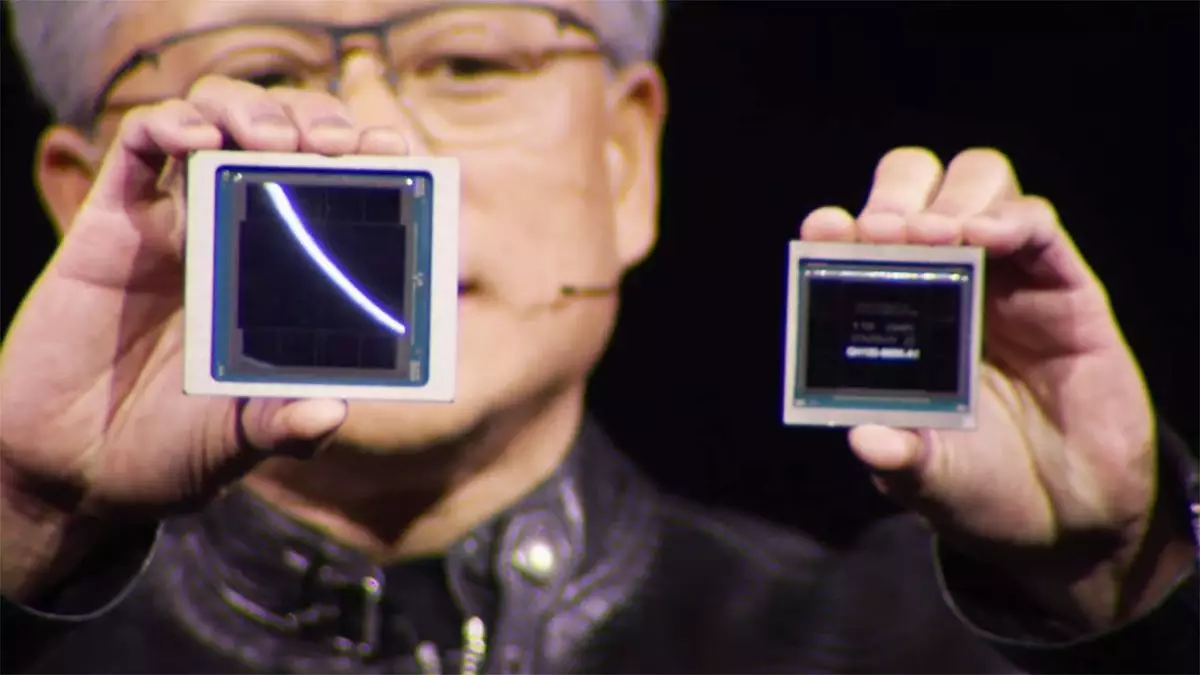Nvidia’s long-awaited Blackwell chips have finally begun to make their way into prominent server infrastructures, notably with Microsoft Azure. However, this rollout comes after a significant delay and raises questions about whether the launch was hasty. Recent revelations suggest that during post-announcement testing, engineers identified critical failures within these chips, particularly in high-voltage environments typical of data centers. This situation sheds light on a complex interplay between Nvidia and its manufacturing partner, TSMC, raising issues of accountability that could strain their decades-long collaboration.
Reports from The Information, relayed by Business Korea, indicate that two insiders reported significant problems during routine testing phases after the chip’s announcement. The chips reportedly could not withstand the demanding circumstances they would encounter in operational settings, potentially jeopardizing clients’ trust in Nvidia’s reliability. As expected in the tech world, both parties—Nvidia and TSMC—are engaging in a blame game. TSMC implies Nvidia may have hurried the production timeline, while Nvidia counters that the challenges stem from TSMC’s packaging technology. Such disputes not only complicate production logistics but also potentially lead to a rift in a partnership that has survived many technological evolutions.
The ramifications of these manufacturing issues go beyond immediate technical failures. Nvidia’s historical relationship with TSMC has had its ups and downs; most notably, it once shifted to Samsung for its 30-series Ampere GPUs. This change was not without consequences, as it resulted in shortages and price surges, underscoring Nvidia’s precarious position in a competitive manufacturing landscape. Currently, as Nvidia contemplates a potential return to Samsung, they may be focusing on obtaining favorable financial terms, hoping for a 20-30% cost reduction compared to TSMC’s pricing. However, this raises skeptics’ eyebrows—can Nvidia realistically find a sustainable alternative in Samsung, given past experiences fraught with disruption?
Despite Samsung’s strong presence in the semiconductor industry, it is crucial to acknowledge TSMC’s predominant industry position. Possessing advanced fabrication technologies and concentrated exclusively on third-party production, TSMC is an attractive partner for companies like Nvidia. The facts speak for themselves: TSMC has recently reported a significant upsurge in sales, a 39% increase compared to the previous year’s third quarter. This robust market performance instills a confidence that is difficult to overlook, especially when navigating supply chain uncertainties and evolving demands.
As tensions mount between Nvidia and TSMC, the engineering issues uncovered during testing raise serious concerns for upcoming product lines, including the anticipated RTX 50-series. The integrity of future releases depends heavily on whether Nvidia can ensure that these defects do not persist in their subsequent generations of chips. A strong emphasis on quality assurance and transparency during the manufacturing process will be critical for restoring consumer confidence.
The trajectory of Nvidia’s Blackwell chip rollout encapsulates the complexities inherent in modern semiconductor manufacturing collaborations. While both TSMC and Nvidia have significant strengths, this recent turbulence highlights the intricacies of their partnership, suggesting that the path forward requires careful navigation amidst industry pressures and potential shifts in alliances. Ultimately, as Nvidia strives to rectify the ongoing issues, the implications for the tech landscape at large remain considerable. Stakeholders will be watching closely to see how this saga unfolds, especially in the highly competitive space of GPU manufacturing, which is continually influenced by both innovation and operational integrity.

